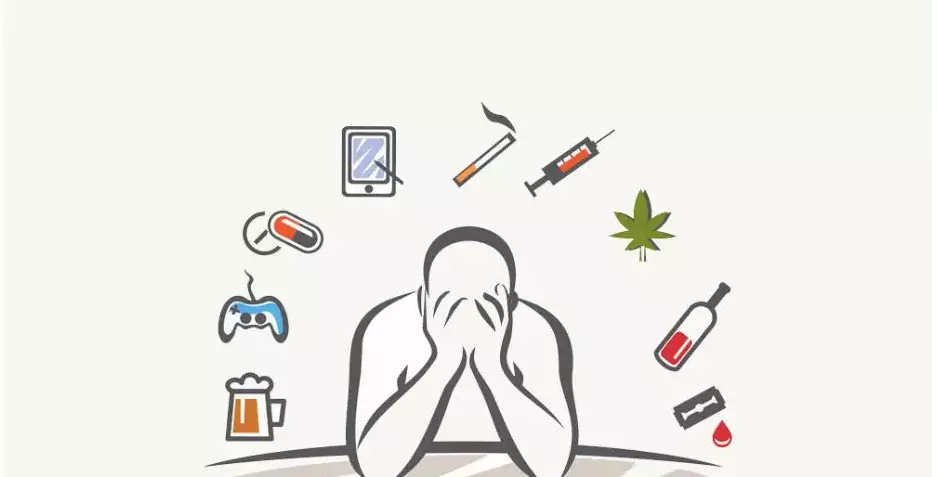Addiction is characterized as a compulsive, chronic psychological or physiological desire for either a substance, behavior, or some form of activity that is habit-forming and has the ability to cause harmful physical, psychological, or social effects. For example, just a few of the symptoms that accompany addiction may include anxiety, nausea, irritability, or tremors.
There are several reasons why addictions begin and progress. For example, you could have a pinched nerve. Your doctor could prescribe some medication to ease the pain. The drug might provide temporary relief, but the pain may reoccur occasionally, so you self-medicate.
Over time, you may find yourself using more drugs than you really need. Before long, you find that you can’t stop using them. Your willpower diminishes and you become addicted.
Of course, it may not be prescription drugs for everyone. People could become addicted to alcohol, other drugs, and cigarettes. Luckily, professionals at drug and alcohol rehab facilities treat addictions and factors that could trigger them.
In addition, there are other options that could help. These options may provide more holistic approaches in addition to the help people receive from rehab centers.
After consulting with medical professionals and discussing your options with loved ones, people may be able to use these substances from the comfort of their own homes. The following vitamins and supplements could help people while they’re in addiction treatment and during their recovery.
Omega-3 fatty acids. These substances are often found in fish and are necessary for proper functioning of the brain and nervous system. They produce many benefits, such as boosting growth hormones and improving a person’s mood, sleep habits, learning, and memory.
Omega-3 fatty acids can also protect against psychiatric disorders related to depression, cognitive impairments, dementia, and Alzheimer’s disease. Smokers and people who abuse cocaine tend to have low levels of omega-3 fatty acids, so adding more of this substance to the diet may reduce cravings and dependency and produce healthier living overall.
Vitamin D. Most people know that an excellent source of Vitamin D comes from the sun. When we’re exposed to sunlight, our skin absorbs the fat-soluble vitamin. Vitamin D protects against the dopamine-depleting effects from methamphetamine (meth).
Studies show that people who have Vitamin D deficiencies and are taking narcotic pain medications such as morphine, fentanyl, or oxycodone may need higher doses of those drugs. Such deficiencies can cause rickets, a softening and weakening of the bones. Outside of sun exposure, vitamin D can be found in fortified milk or fatty fish such as salmon or sardines.
Magnesium. Magnesium is one of the nutrients that everyone should be taking for optimal brain health. This is especially true since most people are deficient in the substance.
Taking magnesium can lower the risk of relapses from sobriety. It can also reduce nicotine cravings for smokers. Some common foods that contain magnesium are pumpkin seeds, almonds, dark chocolate, spinach, avocado, and bananas.
Vitamin C. Vitamin C is a water-soluble antioxidant that protects proteins and lipids from damage associated with an infection, high-intensity exercise, or other types of stress that may injure the cells in the body.
When drug-addicted people consume high doses of vitamin C, it may boost the healing process and help them recover more easily.
Zinc. People who are addicted to drugs may benefit from zinc supplements. For instance, people who have used heroin often have compromised immunity. If they stop using the substance and undergo heroin withdrawal, zinc supplements could help them stabilize their blood sugar levels and strengthen their immune systems.
People can buy zinc supplements over the counter. The substance is commonly used in cold remedies, such as in nasal sprays. The average dosage amount for adults is 15 to 30 mg of zinc.
N-acetyl-cysteine (NAC). NAC supplements help regulate the brain chemistry from the damage that alcoholism can cause. That’s because alcohol addiction could damage the brain and the body. Taking NAC can improve mental health, lower alcohol cravings, and protect the liver from disease.
These six supplements or vitamins are just a handful of the many options that can help individuals on the road to recovery. To learn more about addiction assistance and how to start the recovery process, check out Trend Health for other articles.











